12 novels to read this summer
Check out new work from Annie Proulx, Emma Straub, and Stephen King

A free daily email with the biggest news stories of the day – and the best features from TheWeek.com
You are now subscribed
Your newsletter sign-up was successful
This is the time of year for taking refuge in the mountains, watching sunsets, kicking back — and savoring a good novel. For those who love fiction, the summer of 2016 brings a bountiful harvest across many genres, including suspense-thrillers, dystopian visions of the future, and family sagas that span continents and generations.
Some writers are making debuts that have dazzled the critics, while veterans such as Dave Eggers, Stephen King, and Annie Proulx have new offerings for their fans. Wherever you'll be relaxing this summer, here are 12 books to consider bringing along.
1. Modern Lovers by Emma Straub
The Week
Escape your echo chamber. Get the facts behind the news, plus analysis from multiple perspectives.

Sign up for The Week's Free Newsletters
From our morning news briefing to a weekly Good News Newsletter, get the best of The Week delivered directly to your inbox.
From our morning news briefing to a weekly Good News Newsletter, get the best of The Week delivered directly to your inbox.

The latest novel from best-selling author Emma Straub (The Vacationers) centers on two middle-aged couples and their teenage children who "all have some growing up to do — entertainingly — in the course of one hot Brooklyn summer," said Kirkus Reviews. Three of the four adults know one another from college, when they performed in a band together. The connection breeds one of the story's complications: A producer wants to make a movie about their other band member, who died of a heroin overdose, and needs the rights to the group's iconic song — but not everyone agrees about what to do. The plot also features a midlife crisis, thoughts of divorce, and the antics of hormone-addled adolescents. Straub, who alternates points of view among her "quirky and interesting characters," is a "precise and observant writer whose supple prose carries the story along without a snag."
2. Before the Fall by Noah Hawley
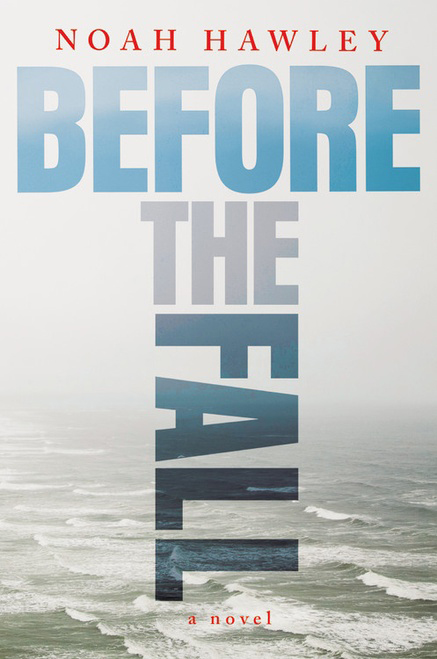
Noah Hawley, a novelist and screenwriter best known as the Emmy-winning creator of the TV series Fargo, has authored a "masterly blend of mystery, suspense, tragedy, and shameful media hype," said Publishers Weekly. The catalyzing event is a small plane crash off the shores of Martha's Vineyard. Nine people die and two survive: Scott Burroughs, a struggling painter, and the boy he saves, the 4-year-old son of the television network owner who chartered the flight. Afterward, Burroughs must cope with survivor's guilt, the frenzied press coverage portraying him as a hero, and the suspicion of the authorities working to determine the cause of the crash. Woven in are the other passengers' and crew members' backstories, which begin to hint at conspiracy rather than accident. "This is a gritty tale of a man overwhelmed by unwelcome notoriety, with a stunning, thoroughly satisfying conclusion."
3. Homegoing by Yaa Gyasi
A free daily email with the biggest news stories of the day – and the best features from TheWeek.com
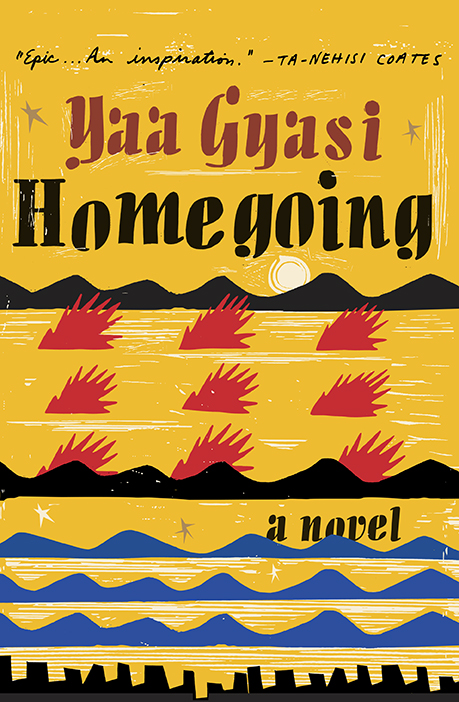
The ambitious first novel from 26-year-old Yaa Gyasi has vaulted her into the ranks of the season's most anticipated new writers. This is a family saga spanning seven generations, and it's steeped in nearly 300 years of African and American history. It opens in 18th-century Ghana with half-sisters who are strangers to each other: Effia is married off to a wealthy British colonizer, while Esi is sold into slavery. One thread of the story follows Effia's descendants through centuries of warfare in Ghana. The other sees Esi and her progeny to the plantations of the American South, through the Civil War and Great Migration, into the jazz clubs of Harlem and on to the present. The book is "more a well-made linked story collection than a complex epic," said Kirkus Reviews. "Yet Gyasi plainly has the talent to pull that off." It's "a promising debut that's awake to emotional, political, and cultural tensions across time and continents."
4. The Girls by Emma Cline
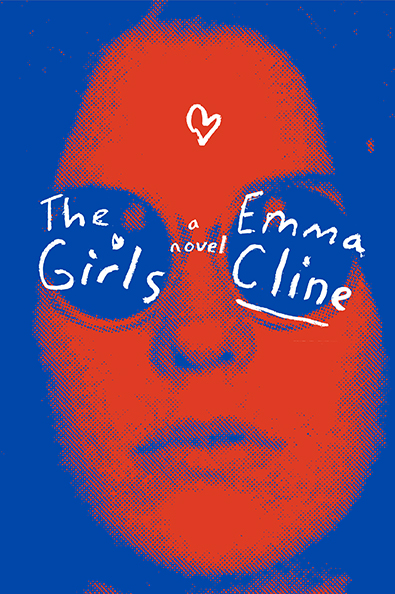
One of the buzziest books of the summer belongs to 27-year-old Emma Cline. Having signed a $2 million three-book deal, she has delivered a "provocative, wonderfully written debut," said Publishers Weekly. The novel is framed as a middle-aged woman's reflection on her entanglement with a California cult in the 1960s, and begins with the young Evie feeling alienated from her divorced parents and stifled by her suburban, upper-middle-class life. Enter the mesmerizing group of girls, in particular 19-year-old Suzanne, who live at a run-down ranch with their charismatic leader. Grateful for their attention, Evie becomes caught up in what she perceives to be their exotic and thrilling life, failing to recognize the darker influences that eventually take hold. Inspired by the Manson family crimes, the novel is "less about one night of violence than about the harm we can do, to ourselves and others, in our hunger for belonging and acceptance."
5. End of Watch by Stephen King
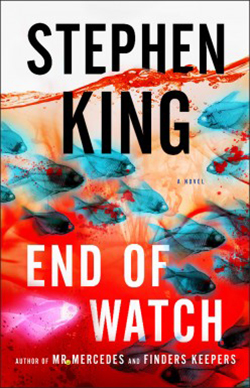
The latest from supernatural suspense master Stephen King concludes the trilogy that began with the Edgar Award–winning Mr. Mercedes and Finders Keepers. While those books "both honored and toyed with the conventions of hard-boiled crime fiction," King now "steers back into the realm of horror that for sure belongs to him," said Kirkus Reviews. Retired detective Bill Hodges is again after Brady Hartsfield, a serial murderer known as The Mercedes Killer. Although in a hospital in a supposedly catatonic state, Hartsfield is freer than anyone realizes: He has acquired psychic powers and is persuading people to commit crimes. He even creates a hypnotic video game that compels users to kill themselves. Hartsfield's sights are set first on doing in Hodges and his sidekicks, then on unleashing a suicide epidemic. The novel is "gleefully gross," and heavy machinery "figures into both the crime and its cure, and suffice it to say that both are exceedingly messy."
6. Barkskins by Annie Proulx
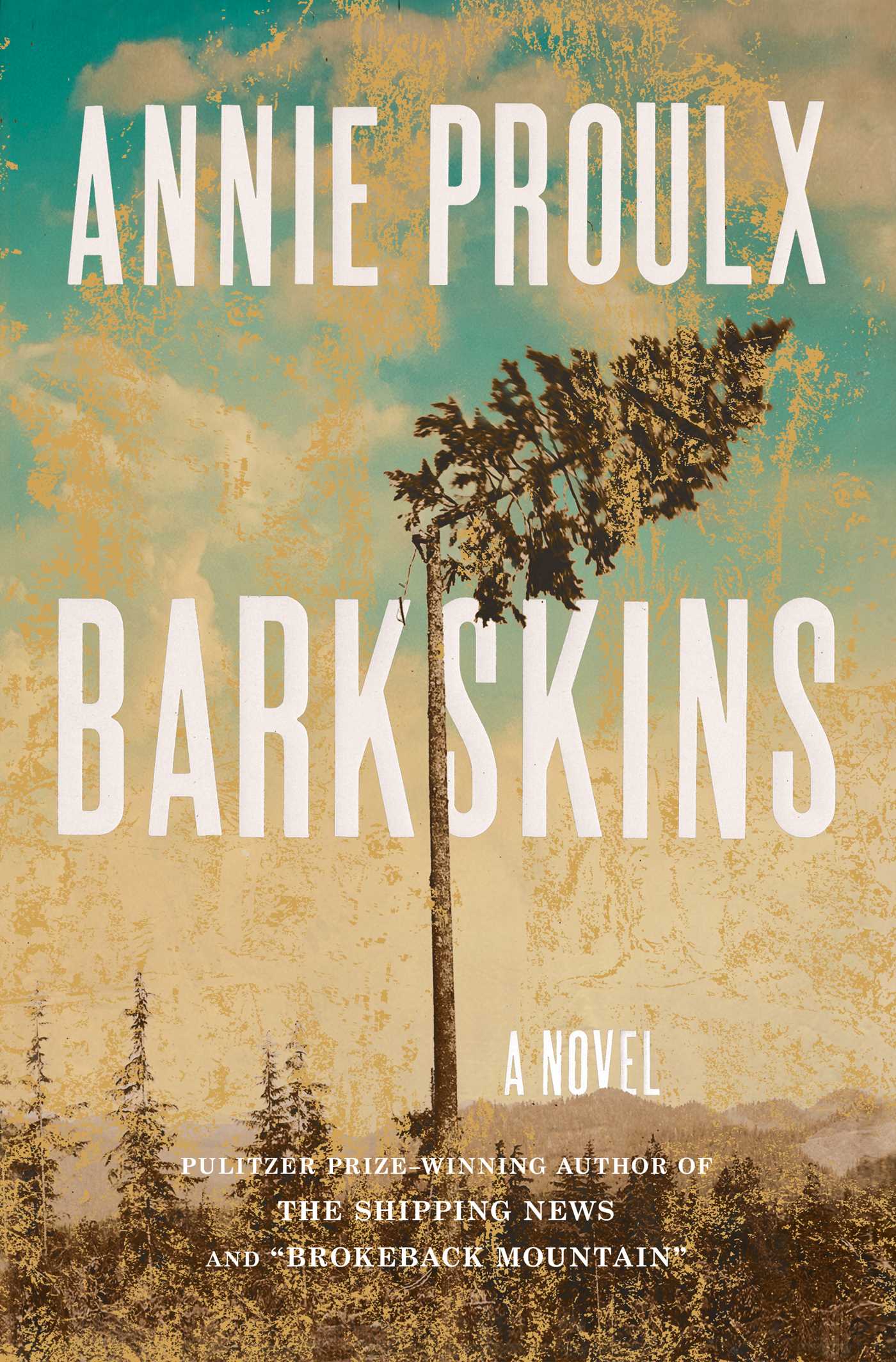
This 700-page epic from Pulitzer Prize winner Annie Proulx (The Shipping News) is "sure to find and enthrall many readers," said Kirkus Reviews. It begins in the late 17th century with two poor Frenchmen, René Sel and Charles Duquet, who arrive in New France (now Canada) and agree to clear the forest as indentured woodcutters for a feudal lord. Duquet eventually runs away and starts a timber company; Sel fathers three children with a native Mi'kmaq woman. As the multigenerational story unfolds, Duquet's descendants take up the family business, while Sel's deal with displacement and the erosion of their culture as Europeans arrive in North America. Violent confrontations ensue, and the present-day characters are forced to face the ecological crisis created by their forebears. The narrative "builds in depth and complication without becoming unduly tangled, and is always told with the most beautiful language." It is "another tremendous book from Proulx."
7. Sons and Daughters of Ease and Plenty by Ramona Ausubel
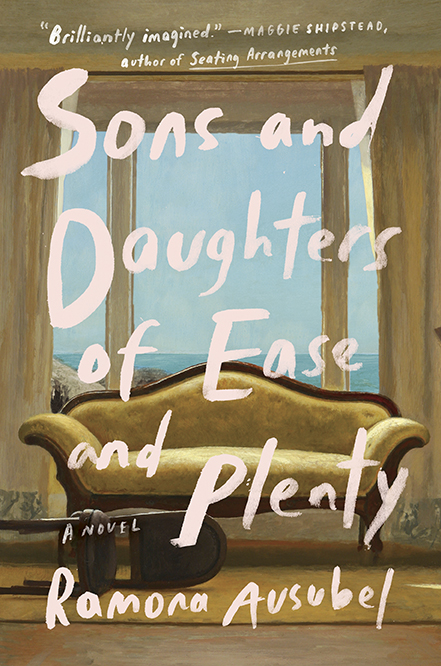
The latest novel from Ramona Ausubel (No One Is Here Except All of Us) offers "an incisive look" at how the schismatic 1960s and '70s affect a couple and their friends and family members, said Publishers Weekly. Events are set in motion when husband and wife Edgar and Fern Keating learn that the family fortune has run dry. Without a source of income, the pair — who have three children — become unmoored. Fern embarks on a cross-country road trip with an unlikely companion, and Edgar departs on a sailing trip with a paramour. Each believes that the other is at home, so their fourth-grade daughter is left to take care of her kindergarten-age twin brothers. The main story takes place in 1976 but is interspersed with flashbacks to Fern and Edgar's early days together. "There is true wit in the author's depiction of these tumultuous decades, and with characters this memorable, the pages almost turn themselves."
8. The Mandibles by Lionel Shriver

Lionel Shriver (We Need to Talk About Kevin) is "nobody's idea of an optimist about the present day," said Kirkus Reviews, and her new book is an "imperfect but savvy commingling" of the apocalyptic and the polemical. The year is 2029, and the U.S. economy collapses when the government refuses to join other countries in establishing a global currency and defaults on all its loans. Against this backdrop, the sizable inheritance that has carried the upper-middle-class Mandible family evaporates. Relatives move in with one another as they adapt — poorly — to the new normal. Their disappointments and struggles run the gamut from being unable to buy olive oil to caring for a demented stepmother whose assisted living facility is no longer affordable. "The lecturing tone sometimes grates," but overall the novel is "a bracing vision of what happens" when we're forced to live by our wits.
9. How to Set a Fire and Why by Jesse Ball
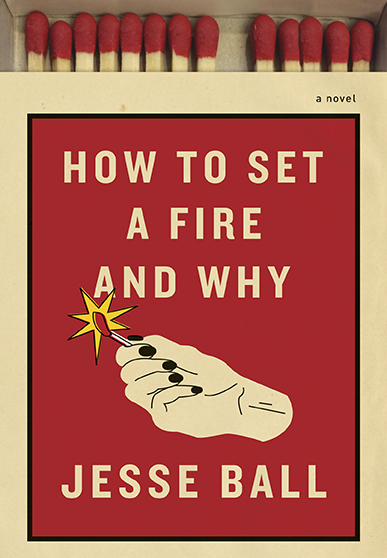
With surrealist author Jesse Ball (A Cure for Suicide), "you can't deny that when he delivers, it's never quite what you expected," said Kirkus Reviews. In this epistolary novel, he delivers the inner life of Lucia Stanton, a troubled teenager who moves in with an elderly aunt following her father's death and her mother's institutionalization. At the outset, Lucia is expelled from school for stabbing a star athlete with a pencil because he touched her late dad's Zippo lighter. After transferring to a new high school, Lucia joins a secret arson club, where she finds friendship and an outlet for her dark obsession; she even writes an instructional pamphlet (which shares the novel's title). The book is "a brilliant portrayal of a girl who's quite aware of what she's going through."
10. I Am No One by Patrick Flanery
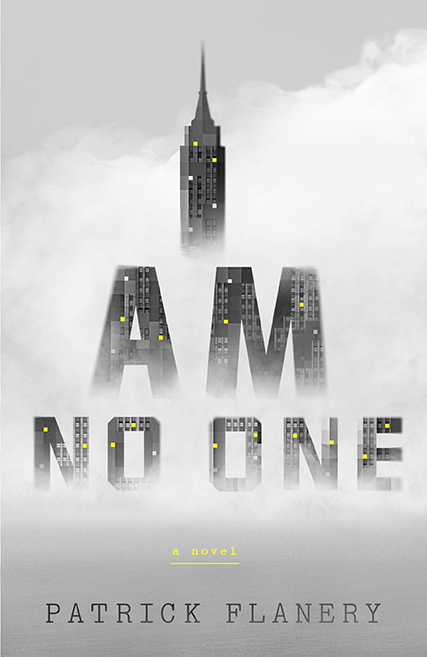
The latest from Patrick Flanery (Absolution) provides "brilliant commentary on pervasive government intrusion into the private lives of citizens," said Publishers Weekly. American college professor Jeremy O'Keefe, who left for the U.K. shortly after the 9/11 attacks and spent a decade teaching at Oxford, has returned to the U.S. to teach at New York University. His life is upended when boxes containing internet data, phone records, and photos from the past 10 years arrive at his doorstep — a wealth of information that seemingly only the government could amass. Among other mysterious occurrences, a young man appears to be shadowing him. Jeremy is left to wonder what he could have done to trigger such surveillance. "This is an excellent portrayal of a good man manipulated by others without ever understanding why."
11. Ninety-Nine Stories of God by Joy Williams
Pulitzer Prize finalist Joy Williams (The Visiting Privilege) shows her talent for short form with this story collection in which "a 'story of God' can apparently be almost anything," said Publishers Weekly. That includes tales of mothers, writers, and dogs; anecdotes about Tolstoy and Kafka; meditations on O.J. Simpson and Ted Kaczynski; and actual stories about God. The God here is often puzzled by creation, and turns up in such varied places as a demolition derby, a formal gala, a hot dog–eating contest, and a drugstore, where he waits to get a shingles vaccination. The stories are rarely more than a few pages long, and "are 100 percent Williams: funny, unsettling, and mysterious, to be puzzled over and enjoyed across multiple readings."
12. Heroes of the Frontier by Dave Eggers
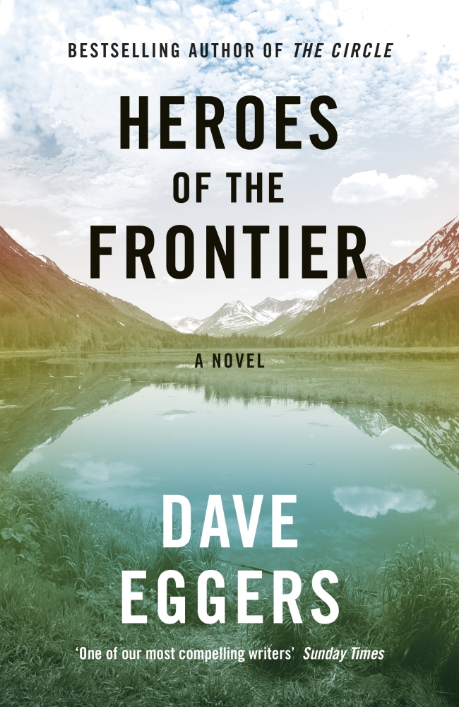
The new novel by Dave Eggers (A Hologram for the King) will resonate with "anyone who has thought about suddenly starting over in an unknown place — which is to say, just about everyone," said Publishers Weekly. In Josie's case, her failed dental practice and breakup with the father of her two children prompt her to flee Ohio for southern Alaska, kids in tow. A road trip in a hard-to-handle RV ensues, and the romance of adventure quickly fades. Josie's plan to stay with her stepsister short-circuits, and the family's journey through the wilderness continues along a route pushed northward by wildfires. While the "shaggy plot may not be to all tastes," Eggers' writing is "fresh and full of empathy, his observations on modern society apt and insightful."